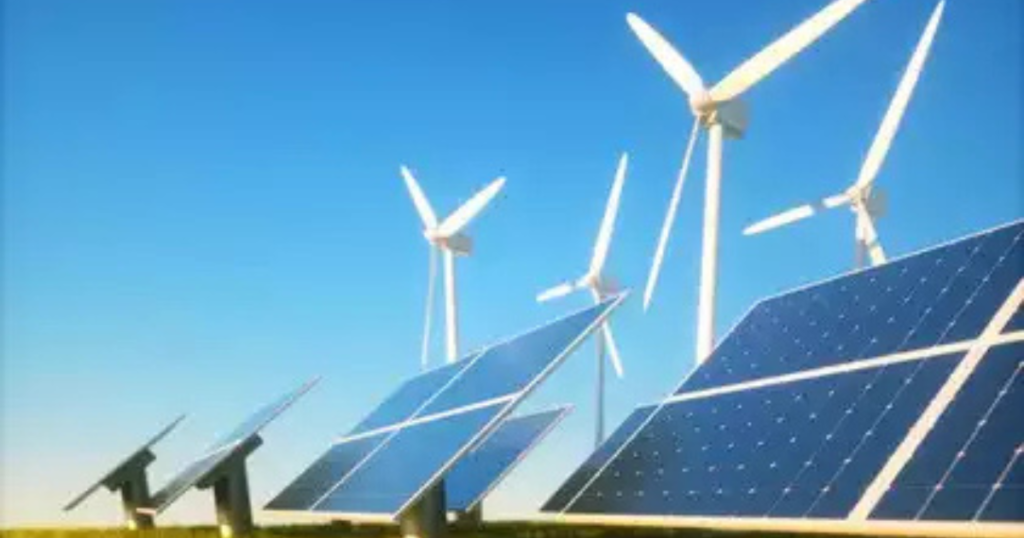As the world shifts toward sustainable energy solutions, green energy government jobs are becoming increasingly important. Governments worldwide are investing in renewable energy, energy efficiency programs, and environmental sustainability initiatives. These efforts have created numerous career opportunities for professionals looking to make a difference in the fight against climate change.
This guide explores the steps to start a career in green energy government jobs, the qualifications needed, the different roles available, and the benefits of working in the public sector.
Understanding Green Energy Government Jobs
Green energy government jobs involve working on projects related to renewable energy, environmental protection, and sustainability initiatives. These jobs exist at local, state, and federal government levels, as well as within international organizations.
Key Responsibilities of Green Energy Government Jobs
- Developing Renewable Energy Policies – Creating policies and regulations that promote the use of solar, wind, hydro, and other renewable energy sources.
- Conducting Energy Audits – Assessing energy usage in government buildings and recommending efficiency improvements.
- Managing Public Sustainability Projects – Overseeing renewable energy installations, smart grid implementation, and energy efficiency programs.
- Enforcing Environmental Regulations – Ensuring compliance with laws that reduce carbon emissions and protect natural resources.
- Research and Innovation – Conducting studies to improve renewable energy technology and sustainability practices.
Types of Green Energy Government Jobs
There are many career paths within the green energy sector in government agencies, including technical, administrative, and policy-driven roles.
1. Renewable Energy Specialist
Renewable energy specialists focus on developing and implementing policies that support solar, wind, geothermal, and hydroelectric power initiatives.
2. Environmental Scientist
Environmental scientists study the impact of energy projects on the environment and develop strategies to reduce carbon footprints.
3. Energy Policy Analyst

Energy policy analysts work with government agencies to design policies that promote clean energy and sustainability.
4. Sustainability Coordinator
Sustainability coordinators oversee government projects focused on waste reduction, energy conservation, and sustainable development.
5. Solar or Wind Energy Technician
These technicians install, maintain, and repair renewable energy systems such as solar panels and wind turbines.
6. Climate Change Analyst
Climate change analysts assess environmental data to develop strategies for reducing greenhouse gas emissions and mitigating climate impacts.
7. Environmental Engineer
Environmental engineers design projects that improve energy efficiency, waste management, and pollution control.
8. Green Building Inspector
Green building inspectors ensure that new construction and renovation projects meet energy efficiency and sustainability standards.
How To Qualify for Green Energy Government Jobs
Government green energy jobs require a combination of education, certifications, skills, and relevant experience. Here’s how you can qualify for these roles.
1. Educational Requirements
A degree in a relevant field is often required. Common degree programs include:
- Environmental Science
- Renewable Energy Engineering
- Sustainability Studies
- Public Policy (with a focus on Energy or Environment)
- Electrical or Mechanical Engineering
- Urban Planning
2. Certifications in Green Energy
Certifications can boost your credibility and job prospects. Some of the most recognized certifications include:
- LEED (Leadership in Energy and Environmental Design) Certification
- Certified Energy Manager (CEM)
- Certified Renewable Energy Professional (REP)
- Solar PV Installation Certification (NABCEP)
- Wind Energy Technology Certification
3. Technical and Soft Skills

To succeed in a green energy government job, candidates should possess a mix of technical and soft skills:
- Knowledge of renewable energy technologies (solar, wind, geothermal, etc.)
- Understanding of energy policies and sustainability laws
- Data analysis and environmental assessment skills
- Project management experience
- Strong communication and teamwork skills
4. Gaining Experience in Green Energy
Practical experience is highly valued in the green energy sector. Ways to gain experience include:
- Internships with government agencies focused on sustainability and energy.
- Volunteering with environmental organizations.
- Participating in renewable energy research projects.
- Working in the private sector on clean energy initiatives before transitioning to a government role.
Finding Green Energy Government Jobs
Many green energy government jobs are listed on official job portals and career websites. Here’s where to look:
1. Federal Government Job Portals
- USAJobs.gov – The primary site for federal government positions.
- Department of Energy (DOE) Careers – Listings for energy-related jobs.
- Environmental Protection Agency (EPA) Careers – Jobs related to environmental protection and sustainability.
2. State and Local Government Jobs
- Many states and cities have their own sustainability offices and clean energy initiatives. Check state and local government websites for job postings.
3. International Organizations
- United Nations Environment Programme (UNEP)
- International Renewable Energy Agency (IRENA)
- World Bank Sustainable Energy Jobs
4. Networking and Industry Events
- Attending clean energy conferences and joining professional associations (e.g., American Solar Energy Society) can help you connect with hiring managers and learn about job openings.
The Future of Green Energy Government Jobs
As governments worldwide commit to reducing carbon emissions and transitioning to clean energy, job opportunities in the sector are expected to grow. Key trends shaping the future include:
- Expansion of Renewable Energy Projects – Increased government funding for wind, solar, and hydropower projects.
- Energy Efficiency Regulations – Stricter policies will require skilled professionals to enforce and monitor compliance.
- Green Infrastructure Development – Growth in smart cities and sustainable urban planning.
- Advancements in Energy Storage – Research and development roles will focus on improving battery storage and grid integration.
- Increased Public-Private Partnerships – Collaboration between government agencies and private companies to accelerate green energy innovation.
Also Read: What Are Cybersecurity Government Jobs And How Do You Qualify?
Conclusion
Green energy government jobs provide an exciting opportunity to contribute to a sustainable future while enjoying job stability, competitive salaries, and career growth. Whether you’re interested in policy development, engineering, environmental science, or renewable energy technology, there is a role for you in this expanding sector.
By obtaining the right education, certifications, and experience, and staying informed about industry trends, you can successfully launch a rewarding career in green energy government jobs.
FAQs
1. What are the benefits of working in a green energy government job?
Government jobs offer job security, competitive salaries, benefits, career advancement opportunities, and the chance to make a positive environmental impact.
2. Do I need a degree to work in green energy government jobs?
While a degree in a relevant field is often required, some positions accept certifications and experience in place of formal education.
3. What is the salary range for green energy government jobs?
Salaries vary by role and location but typically range from $50,000 for entry-level positions to over $120,000 for experienced professionals and management roles.
4. Are green energy government jobs in demand?
Yes, with increasing investment in renewable energy and sustainability, demand for skilled professionals in the sector is rising.
5. Can I work remotely in a green energy government job?
Some positions, such as policy analysts and researchers, allow remote work, while others, like technicians and engineers, require on-site presence.



